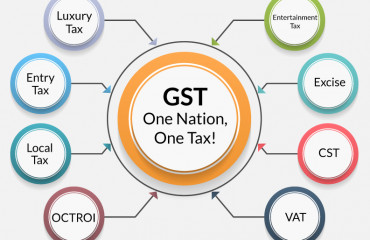
New Delhi: The government will set up an internal panel to overhaul the Income Tax Act, aiming to eliminate outdated provisions and enhance clarity, according to revenue secretary Sanjay Malhotra.
New Delhi: The government will set up an internal panel to overhaul the Income Tax Act, aiming to eliminate outdated provisions and enhance clarity, according to revenue secretary Sanjay Malhotra.
Malhotra, in an interview to Mint, emphasized the need for a more concise and understandable tax code by removing redundant sections and linking related provisions across different chapters.
"We will set up an internal committee and review all the provisions. The purpose is to make it (the Act) easy to read and easy to understand.," Malhotra said.
"There are a number of sections with innumerable exceptions and provisos. There are a number of provisions on one subject which are spread over various chapters. Linking them will make it easy to comprehend. There are a number of sections which have today outlived their utility. There are a number of sections which perhaps are procedural and perhaps can be removed from the Act so that it becomes concise, readable and understandable."
For GST rationalisation the Centre will work with the states, the secretary said. "On GST, as I said, our effort always has been to simplify the law. Similarly, in the review or the rationalization of GST rates that is being talked about or in including certain sectors which are currently not in GST that is being talked about-- are all aimed at making life simpler for the taxpayers and the common man," Malhotra said.
"While the central government will endeavor to rationalize the GST rates, we are mindful that states are an equal partner, if not more. Our effort will be to bring about a consensus on these efforts through the group of ministers that has been constituted for this purpose," said Malhotra.
Amit Singhania, managing partner at Areete Law Offices said the government may review the Income Tax Act to simplify the language, make it more reader friendly and attempt to reduce the possibility of litigation. Assessment related provisions and those relating to non-residents' taxable income may see changes, he said.
The revenue secretary said that although the indexation benefit, which adjusts for inflation while computing capital gain, has been proposed to be eliminated in the union budget for FY25, a vast majority of taxpayers with long-term capital gain from real estate assets will benefit from the rejig of thetax structure because the tax rate has also been lowered from 20% to 12.5%.
The union budget presented by finance minister Nirmala Sitharaman proposed lowering the tax rate and eliminating the indexation benefit on long-term capital gains available on property, gold, and other unlisted assets. The secretary said the aim has been to bring uniformity, and requests for indexation for real estate alone were not proper.
The rate of tax deducted at source (TDS) has been proposed to be lowered in the budget in order to balance different modes of tax collection, Malhotra said. "Balance is very important. TDS is a source for collecting taxes and also for collecting information. We do not want to collect more than what is due," said Malhotra.
Over the years, tax deducted at source or TDS has emerged as the mode of tax collection that contributes the most. The removal of angel tax—treatment of share premium in excess of fair valuation in the case of unlisted shares as taxable income—will not affect the government's fight against money laundering as Companies Act and Prevention of Money Laundering Act will address those concerns, Malhotra said.
The government will also notify select luxury items purchased at prices more than ₹10 lakh, on which there will be a tax collected at source (TCS) as part of efforts to have greater oversight over the taxable income of persons, the Secretary said.
The tax proposals seek to achieve three broad objectives, Malhotra said. "One is the ongoing exercise of making tax laws simple so that compliance is easy and smooth so that there are fewer disputes in the courts,"
"The second objective is to support the economy in its growth trajectory, especially for investment and employment. The third objective is to make taxes reasonable for the common man whether it is the personal income tax or GST. When GST was introduced, we simplified and rationalised it because we believe it will make our industry more competitive," said Malhotra.
Amit Maheshwari, tax partner, AKM Global, a tax and consulting firm said that the proposed review of Income Tax Act may streamline the tax system. Key reforms could include simplifying tax slabs by reducing their number and broadening the tax base, while also removing the outdated old tax regime. Another area could be strengthening anti-abuse provisions, including by clarifying on the General Anti-Avoidance Rules (GAAR), said Maheshwari.
